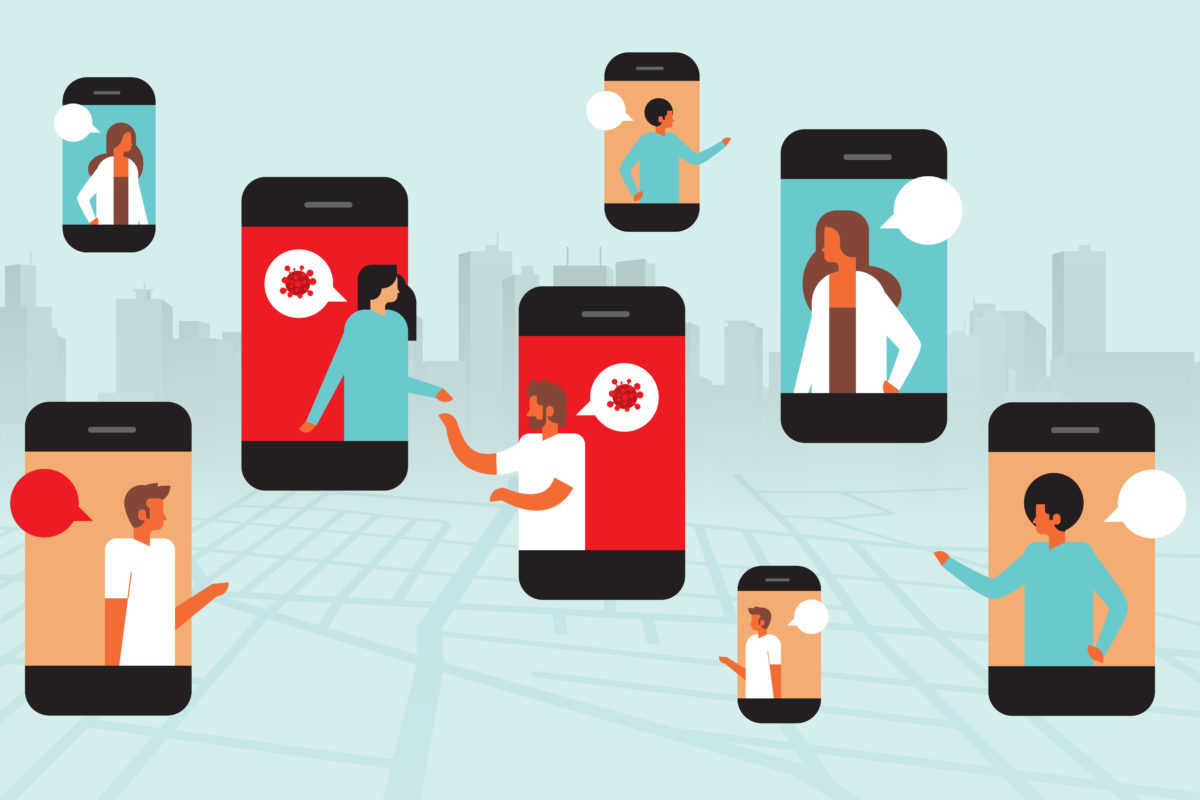The spread of COVID-19 in Nigeria has been paralleled by the spread of misinformation and disinformation about the novel coronavirus. In Nigeria, information casting doubt on the existence of the coronavirus is spread especially through social media channels, but also through other informal channels.
Some religious leaders with considerable influence have doubted the existence of the virus, and shared conspiracy theories on its origins and the interventions instituted to prevent further spread of the virus. Others have taken to social media to express concerns about the Nigerian government and a perceived lack of transparency. For example, the government has received criticism for continuing its school feeding program during the pandemic, at a time when schools are closed, children are at home, and the country’s financial resources are scarce.
Unproven cures and interventions are also regularly propagated, especially via social media channels such as WhatsApp. For instance, hydroxychloroquine, a drug used for malaria previously, has been touted as a cure, despite evidence to the contrary, prompting some to stockpile it and instigating much discussion on social media.
The challenge of misinformation and disinformation is compounded by the evolving nature of discoveries continuously being made about the virus: from its evolution from a respiratory illness to a much broader spectrum of health problems, from masks only for health care workers to a mandatory requirement for all, from not airborne to now being likely airborne. The rapid, sometimes contradictory developments have had the effect of diminishing trust in and the authority of global and Nigerian health leaders.
Amid the Nigerian public, there is persistent disbelief in information put out by the government relating to COVID-19 prevalence rates. Daily updates on the number of confirmed cases in Nigeria are provided by the Nigeria Centre for Disease Control (NCDC), Nigeria’s national public health institute, on its social media handles. To date, the country has recorded nearly 50,000 confirmed COVID-19 cases.
The response to these updates, starting from late February when Nigeria recorded its first case, has changed over time from expressions of fear and encouragement, to active engagement during the lockdown, to outright disbelief in the figures, and finally to an apparent nonchalance. There continues to be lack of belief in the existence of the virus, the veracity of the amounts that the government has spent on COVID-19 interventions, the reasons behind such measures as closing down religious institutions or closing down schools, and the appropriate treatment for the virus, among other concerns. These challenges have a direct impact on the efforts to prevent the spread of the novel coronavirus in Nigeria.
Should the law play a role in curbing misinformation? Some surveys have indicated social media platforms as the main sources for information for many people, particularly young people. At the present time, the Nigerian government has worked on a few relevant laws. These include the Nigeria Centre for Disease Control Act, which confers information provision functions on the NCDC. A bill that would regulate social media, presented prior to the pandemic, has been met with much resistance, given its apparent focus on curtailing criticism of government. In general, concerns around censorship and limitations on free speech rear their heads when considering whether the law should intervene in limiting misinformation. And other ongoing legislative efforts on developing public health emergency legislation have not focused on misinformation or disinformation.
In my view, the evolving nature of knowledge about COVID-19 presents a challenge in clearly defining criminal sanctions for COVID-19 mis- and disinformation. However, at this point, some basics about the virus are well understood, and efforts should thus focus on disseminating this important information.
How can we channel the law’s focus to providing avenues for providing the right information? While the NCDC Act confers the role of communicating relevant public health information to the NCDC, it does not specify the role of the public or address issues relating to misinformation. In this regard, the law ought to provide the right resources and incentives for spreading the right information. It is essential to embed culturally appropriate measures in the law to encourage compliance. Such progressive strategies as public education and risk communication should be given priority and a foundation in the law to support persistent communication of the current facts. As a secondary priority, though not unimportant, deliberate spreading of false information must be sanctioned, not only for the purpose of deterrence, but also to punish the harm that misinformation portends for all. Extreme cases of misinformation and disinformation may mandate sanctions by professional regulatory bodies or the payment of fines (including for organizational entities) as a last resort to prevent individual harm.
The COVID-19 pandemic has presented unparalleled challenges to the world, including misinformation and disinformation. In Nigeria, as in other parts of the world, disinformation and misinformation are at epidemic proportions, with impacts on public perception, trust, and effectiveness of policy and other interventions.
It is likely that misinformation will remain a battle during the COVID-19 pandemic. However, the law has a role to play in supporting the provision of the right information, especially as we await more information on cures and vaccines. The law should provide strategies for risk communication, as well as the requisite resources (including, but not limited to, funding) for effective risk communication. These must be considered in the efforts to develop public health emergency law in Nigeria.
Dr. Cheluchi Onyemelukwe is an Associate Professor at Babcock University and Managing Partner at Health Ethics and Law Consulting.
